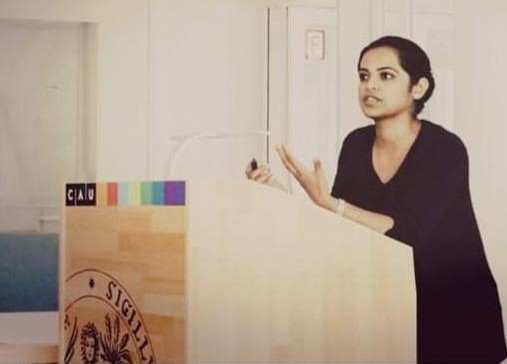Teaching International Law in Indian Law Schools
- Dr. Radhika Jagtap, Ph.D. (JNU, New Delhi)
Even before one attempts to address “teaching international law in Indian law schools”, one may do some brainstorming as to why international law be taught in Indian law schools at all. The Indian subcontinent, India as a geo-strategic area and India as a cultural polity are today the subject of qualitative studies across the world. There are, in fact, specialized centers of study dedicated to this region for in depth scholarly analysis. Right from her decolonization to the present age modern affairs, India has always enjoyed academic attention. However, the question is whether the same reflects through our curriculums concerning subjects like those of Public International Law and International Relations and Diplomacy. Not trying to come across as jingoistically nationalist, but its a humble submission based on scholarly explorations that the discipline of public international law suffers a western/colonial hangover, at least in its mainstream discourse.
So, what do we mean when we say “teaching international law in Indian law schools”? Do we mean teaching the concepts and theories of the discipline as per the dominant narrative? Do we mean “teaching international law and India”? Or do we mean teaching international law in India critically?
With eminent critical academicians of the discipline like Martti Kosekeniemmi who worked on “historical turn in international law” or R.P. Anand devising the third world approaches to international law, we saw the entry of critical pedagogies into the otherwise bland and traditional terrain of international law. The traditional international law, as alleged by these critical scholarships, was statist, highly Eurocentric and a facilitator of colonialism and imperialism. It also did not legally recognize categories of subjects like the indigenous voices, native peoples’ aspirations or the question of gender. It is also alleged by many scholars from the post colonial world that there is a certain sense of dominance in the way the literature of international law is written. Most of it celebrates and prioritizes the western and European scholars as the best sources of scholarships. Intellectual projects like the “Critical Legal Studies” and “Third World Approaches to International Law” (TWAIL) offer relevant rebuttals. Certainly, today the scholarship as well as the conversation has evolved, but what about the classrooms and the curriculums? Many revolutions and intellectual ideas are known to have emanated from classrooms. These critical intellectual projects also owe their respective existences to none other but the four walled classrooms in places like JNU, Madras University and the Harvard Law School. Therefore, it can be put forth that the way we discuss international law with our students would definitely shape the discipline in return.
Unfortunately, what can be seen in the curriculums of international law in most other places in India is the lack of critical scholarships. There is a very piece-meal approach which is at work. Public international law today affects and regulates several aspects of our individual lives- be it human rights, intellectual property rights, labor rights or environmental rights. It is no longer a supranational law governing just the nation states’ behavior. But what we have is only one semester or around 45 hours dedicated to the subject in a 5 year integrated course. We fail to appreciate the fact that in depth understanding of the subject, from political, philosophical and commercial point of view may not suffice without the curriculum being expansive.
It is so important to constantly nurture them with interests for MUNs and international law moot courts, especially on critical issues because these are the individuals who might represent our country as future diplomats, expats, foreign embassy office bearers, experts and arbitrators. The students are inquisitive and curious, but they always need catalysts. It is important that we raise the issue of curriculums being the same old dusty five units spread over topics like sources, theories, diplomacy, war and human rights in academic board meetings and forums. We must, in our legitimate capacity, also recommend the inclusion of the study of international legal pedagogies, the Human Rights movements, the contributions of developing countries at the GATT conferences and the establishment of the World Trade Organization, etc. in the syllabus.
If we as teachers do not come out of the formalist and Eurocentric shell of the discipline, we would keep on repeating the patterns that reproduce stagnation of knowledge. As teachers in the Global South, we must urge our students to read the discipline from multidimensional perspectives and not from just the exam scoring point of view. They must make us run for our money by asking some real and tough questions. They must know what transpired in 1955 at the Bandung Conference. They must be aware of what was Vijaylakshmi Pandit’s contribution in the drafting of the Universal Declaration of Human Rights. They must understand why respecting the ancestral lands of the adivasis in our country is not an act of charity done by the state but is their human right. They must be able to point out due to which international legal developments today an Indian woman can work safely in a workplace. We must, besides teaching them about the bureaucratic and diplomatic history of the discipline, also teach the revolutionary history. Because REVOLUTIONS ARE NEVER TELEVISED!!

